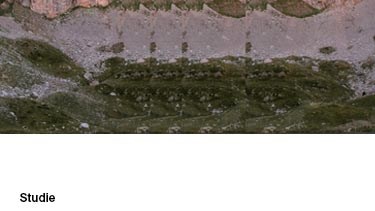Unsolicited listings of foreign shares in Germany
We are sometimes approached by foreign companies who discover that their shares are being traded on the open market of a German stock exchange. Normally these companies never initiated such trading and are wondering about its consequences (in particular follow-up obligations and liability risks) and how the trading can be avoided or ended. This article shall serve to shed some light onto these issues.
What is the open market?
The open markets (Freiverkehr) are market segments of the German stock exchanges which are not generally supervised by a public authority. Their primary purpose is to allow for trading in shares and warrants issued by foreign entities or small and medium sized German companies (and already admitted to other stock exchanges). In contrast to the regulated market, this market segment is based on private law. The legal thresholds for the inclusion of securities into an open market are low, which simplifies the access.
All German open markets have sub-segments which provide for additional listing requirements and post-inclusion obligations (such as the Entry Standard of the Frankfurt Stock Exchange or the M:Access segment of the Stock Exchange Munich). They are referred to as qualified sub-segments of the open markets (qualifizierte Freiverkehrssegmente) and certain provisions of the German and European capital markets laws apply to issuers of securities included in these sub-segments (e.g. the obligation to disclose inside information under the Market Abuse Regulation). As a general rule, the inclusion of securities in qualified sub-segments of the open markets always requires the consent of the issuer. This article only refers to the general open markets of the German stock exchanges.
How are securities being listed on the open market?
Under the terms and conditions of the various German stock exchanges, “specialists“ (in particular stock exchange traders) have the right to apply for inclusion of securities in the open market without consent by or notice to the issuer. This happens if a specialist sees sufficient demand for the securities from investors acting on the German or European market. For the issuer, the listing is considered only beneficial as it increases trading in the instrument and may promote the visibility of the issuer in Germany.
To list an instrument on the open market without the consent of the issuer, a specialist must apply to the stock exchange and provide certain information about the instrument and the issuer. In some cases an exposé is required, but in contrast to the regulated market and the qualified segments of the open markets, there is no requirement to publish a prospectus. The specialist is obliged to notify the issuer about the intended listing, but an objection of the issuer is irrelevant. The stock exchange, as operator of the open market, decides on the inclusion.
Do any obligations or risks for the issuer result from the open market listing?
The listing on the open market does not impose any post-inclusion obligations on the issuer, as there is no contractual relationship between the issuer and the stock exchange. This means that the issuer is not subject to liability in relation to the inclusion and the information provided by the specialist to the stock exchange, any duties to publish price-sensitive information or financial reporting.
Is it possible to delist securities from the open market?
From a legal perspective, it is possible to delist shares included in an open market from the stock exchange. However, only the stock exchange and the specialist have the right to termination. In cases where there is no contractual relationship between the issuer and the specialist that initiated the listing, the issuer has no right to instruct the specialist to terminate the stock exchange listing.
When considering to terminate a listing on the open market, three other things should be kept in mind. First, to end the "German listing", the issuer would not only have to terminate the inclusion in the open market in one stock exchange (which will most likely be the Frankfurt Stock Exchange), but also any other German stock exchange. Second, even if this has been achieved, any bank admitted as specialist could apply for reinclusion without the issuer’s consent on any of the regional stock exchanges in Germany. Third, the specialist which has initiated the inclusion in the open market has a risk that investors may hold it liable for terminating the listing as their shares lose their transferability over the Germany stock exchanges, so many specialists might be reluctant to consider a termination if the issuer requested them to do so.
Under certain requirements, the stock exchange has a right to terminate a listing, e.g. when trading on the open market is not possible for technical reasons. This may be the case, for instance, when trades in the listed instrument cannot be settled over the German clearing system any more.
Well
informed
Subscribe to our newsletter now to stay up to date on the latest developments.
Subscribe now








